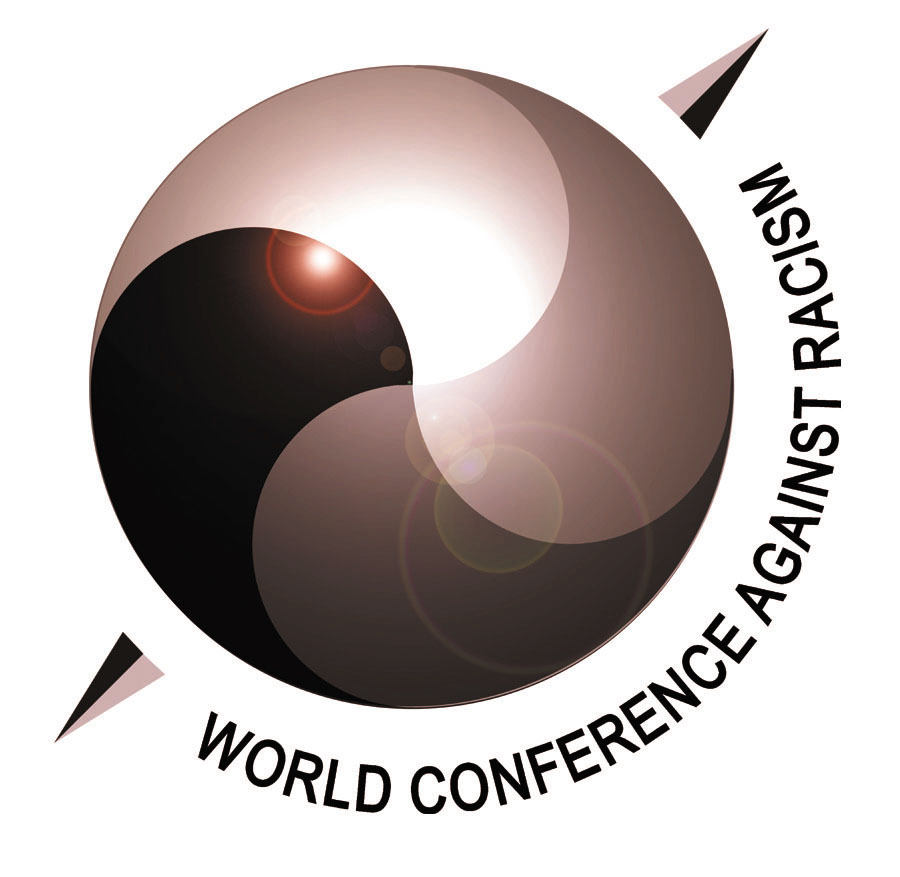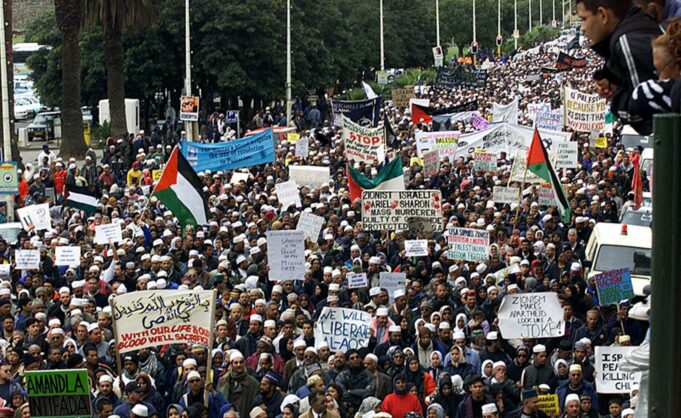WASHINGTON—In August of 2001, thousands and thousands of delegates representing governments and non-governmental organizations (NGO) gathered in Durban, on South Africa’s east coast for the 10-day World Conference against Racism, Racial Discrimination, Xenophobia and Related Intolerance—known widely as the World Conference Against Racism—the third and largest of what’s now become a series of five international meetings organized by the United Nations to promote struggle against racism, its ideologies and its behaviors.
Former Irish president Mary Robinson, then the UN High Commissioner for Human Rights, presided as secretary-general. As important as the gathering and its deliberations were at the time, the 2001 conference ended on September 8, just three days before the 9/11 attack on New York’s Twin Towers which erased literally every other subject from the headlines and the world’s collective consciousness.
The Honorable Minister Louis Farrakhan sent photographer Kenneth Muhammad and myself to cover the event for The Final Call Newspaper, and before we even arrived, we were exposed to a sample of the deep racism that permeated South Africa and the world. On our flight from Johannesburg to Durban, a White passenger proudly told Brother Kenneth that he should feel fortunate: “10 years ago,” the man said, “you wouldn’t be able to even look me in the face.”
Indeed, the remnants of apartheid were visible in Durban, then seven years after White minority rule ended. There were dozens of businesses apparently imitating U.S. models, including fast food and service industries, where all the Black workers who wore uniforms to work had Christian names instead of their given KwaZulu names, and they seemed to never look into faces, even of Black foreigners.
Unlike the earlier conferences in 1978 and 1983, the 2001 World Conference Against Racism was marked by clashes over the debate over declaring Israeli “Zionism as racism,” and reparations for the victims of the Trans-Atlantic slave trade, which the NGOs had declared a crime against humanity.

In fact, the governmental portion of the conference was ripped to shreds when Israel led the United States and Canada, its most loyal allies at the meeting, to abruptly walk out. Then, the European Union also refused to accept demands by Arab states to criticize Israel for “racist practices.”
There was unprecedented engagement by numerous NGO delegations of Blacks from the United States with delegates from Africa and the Caribbean. African countries, led by Nigeria and Zimbabwe, and African-American NGOs wanted individual apologies from each of the countries responsible for slavery, recognition of it as a crime against humanity, and reparations labeled as such.
The European nations pulled together behind the United Kingdom and the best the Africans could get from the official government forum was a call for support for the New African Initiative, debt relief, funds to combat AIDS, the recovery of stolen government funds transferred to the West by former dictators and their cohorts, and an end to the trafficking in people. But the word “reparations” did not survive.
Two other delicate subjects which were prominent at the Durban conference, but which have been literally erased from world consciousness since 9/11, are the plight of the Dalit people of India, and the Roma people of Europe.
The Dalit are the black-skinned, so-called “Untouchables,” the very lowest group in India’s rigid, color-coded, caste system. The Roma are a nomadic people who entered Europe between the eighth and tenth centuries and were called “Gypsies” because the Europeans mistakenly believed they originated in Egypt, rather than the Punjab region of Northern India.
Brother Kenneth and I stayed in a Durban suburb known as Amanzimtoti. There, a Christian missionary school, called Adams School had been founded in 1853 by the Rev. David Rood, a Black missionary from the United States. Former presidents of both Uganda and Botswana are alumni.
I met another alumni of the school who was in his 70s in 2001. He burst into tears during our conversation when he remembered that every morning the school children would sing a U.S. Negro Spiritual, so that they would never forget their “brothers and sisters” in the United States, whom they would likely never meet.
When I asked a local guide about the whereabouts of Adams School, I learned that in 1947 the school was burned to the ground by White Afrikaners. The only remnant left were signs reading Adams Weë (pronounced “wig”), meaning Adams Road, where the school had been located.
In 2009 and again in September 2021 the UN reconvened the World Conference Against Racism. This year, after more than a year of racial reckoning that saw historic monuments to enslavers and colonists torn down on both sides of the Atlantic, the representatives from some of the White world’s biggest powers did not attend.
Several countries that grew wealthy from colonialism and slavery, including the United States, Canada and the UK, attended their own optimistic summit also in September focused on extending Covid-19 vaccine supplies to the rest of the world, convened by President Joe Biden.
Meanwhile, ambassadors from once-exploited regions in Africa, South America and Asia undertook the discussion of structural inequality and racism at a separate conference, themed “Reparations, racial justice and equality for people of African descent,” according to published reports.
UN Secretary General Antonio Guterres, who attended both events, opened the racial justice conference with an argument for why just such an event mattered, pointing to a new spread of “xenophobia, misogyny, hateful conspiracies, White supremacy and Neo-Nazi ideologies.”
“Racism and racial discrimination still permeate institutions, social structures, and everyday life in every society,” Mr. Guterres said. “Structural racism and systematic injustice still deny people their fundamental human rights,” he emphasized, pointing to the unequal toll of Covid-19 on non-Whites.
The solution the secretary-general continued, is not just to reject hate, but to right historical wrongs. “We must reverse the consequences of generations of exclusion and discrimination, including their obvious social and economic dimensions,” he said.













